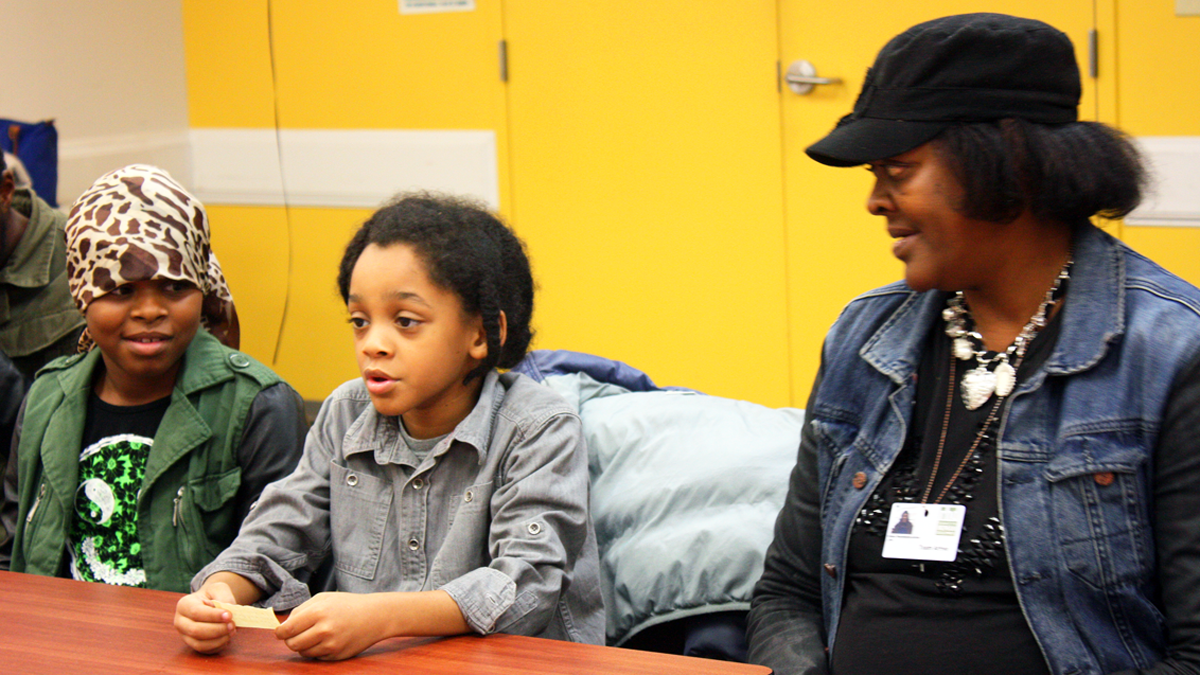Pilot program in Philly aims to keep kids with parents, even in times of trouble

Donna Washington and her kids, Christenea and Christopher Archer, take part in a program at Child and Family Connections in Philadelphia. (Photo by Judy Kuo)
In Philadelphia, parents face a greater risk of having a child taken from them because the home environment is considered unsafe.
It has one of the highest rates of child removal among large U.S. cities.
The probability is even higher for parents who have a serious mental illness.
But a new Philadelphia pilot program, Safe Together, aims to help parents keep custody of their children — even if they have a mental health crisis.
During a crisis, severe mental Illness can make it tough for parents to provide clean clothes, a schedule and other basics for their children.
“What happens if you’re not feeling well, and you can’t get out of bed for two or three days?” said Evan Kaplan, the executive director of Child and Family Connections. “That could be considered an emergency, especially if your kids are fending for themselves.”
Typically, a neighbor or a teacher will call police or the Department of Human Services and make a report, Kaplan said. If the first responders decide the adult in the home is incapacitated — and there are no other adults in the home — they can remove the children.
“When you look at lower-income families in a poor city like Philly — if a parents themselves haven’t lost custody, then they certainly know somebody in the neighborhood that has,” Kaplan said. “And so that fear is in them.”
The Safe Together pilot program will help parents create a legally binding family plan — a family plan and advance directive known as an FPAD.
In the event that someone becomes medically incapacitated, the advance directive dictates the kind of treatment desired.
The parent also can legally select someone who is responsible for making decisions on his or her behalf, in case the parent is incapacitated by mental illness.
“The goal is that individual shows up at the house, the minute that there is a level of concern, well before a DHS or a school concern,” Kaplan said. Parents can choose whomever they feel most comfortable with, not just relatives.
The parent can designate other proxies as well — for instance, someone who can run the household while the parent is incapacitated or someone who can make financial decisions. Sometimes, one person can be in charge of child care, finances and the home.
“It is, we hope, a prevention for children being removed from the home,” Kaplan said, adding that the program will be the first of its kind.
Kaplan, who has been through his own mental health struggles and custody issues, said that drawing up an FPAD years ago with appropriate outside help could possibly have prevented some of those problems.
Beyond the obvious positives, he said, coming up with the plan makes parents talk about their mental illness, which is, itself, an act that reduces stigma.
The program is just beginning, and Kaplan said his goals are raising awareness and looking for a partner in the community who can implement the curriculum.
On Thursday, Child and Family Connections will host an event to raise awareness about the Safe Together pilot.
WHYY is your source for fact-based, in-depth journalism and information. As a nonprofit organization, we rely on financial support from readers like you. Please give today.

